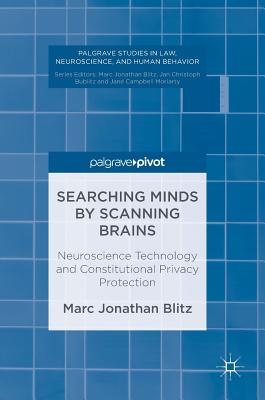This book examines the ethical and legal challenges presented by modern techniques of memory retrieval, especially within the context of potential use by the US government in courts of law. Specifically, Marc Blitz discusses the Fourth Amendment’s protections against unreasonable searches and the Fifth Amendment’s self-incrimination clause. He also argues that we should pay close attention to another constitutional provision that individuals generally don’t think of as protecting their privacy: The First Amendment’s freedom of speech. First Amendment values also protect our freedom of thought, and this—not simply our privacy—is what is at stake if government engaged in excessive monitoring of our minds.
| FindBook |
|
有 1 項符合
Blitz,Marc Jonathan的圖書 |
 |
$ 3599 | Searching Minds by Scanning Brains: Neuroscience Technology and Constitutional Privacy Protection
出版社:Blitz,Marc Jonathan 出版日期:2017-03-27 語言:英文 規格:精裝 / 15.2 x 21.6 x 1.9 cm / 普通級  看圖書介紹 看圖書介紹
|
|
|
圖書介紹 - 資料來源:博客來 評分:
圖書名稱:Searching Minds by Scanning Brains: Neuroscience Technology and Constitutional Privacy Protection
|











